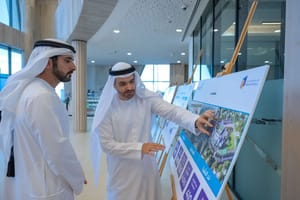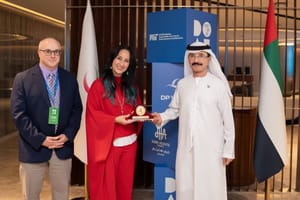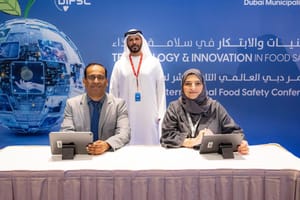The UAE Federal Agency for Early Education (FAEE) has launched the Emirati Recruitment Initiative (ERI) to attract nationals into the early education ecosystem, contribute to the development of this vital sector and enrich Emirati educational capabilities.
Applications are now open to nationals from the seven emirates with various academic and professional backgrounds wishing to play a role in providing early education to children. Successful Emirati recruits will be offered employment opportunities at public schools across the country as teachers and teaching/classroom assistants in various subjects, including arts and culture, from nursery to Grade 4.
“Our national human capital is a key enabler in our goal of building a thriving and sustainable early education ecosystem. The critical building blocks of a child’s holistic development and social identity are laid during the early years of education. Emirati teachers have a vital role to play in shaping our young students’ minds and instilling a strong sense of self within the context of our national identity, culture and values,”
said Sara Musallam, Minister of State for Early Education, FAEE Chairman, and Chairwoman of Abu Dhabi Department of Education and Knowledge (ADEK).
“We encourage potential applicants to explore a career in a sector where the real influence and impact come from educators whose role will support and enable our students to thrive academically, emotionally, and socially.”
Commenting on the ERI launch, Noura bint Mohammed Al Kaabi, Minister of Culture and Youth, stated that the new recruitment initiative reflects the commitment of the UAE’s leadership to invest in developing national human capital and providing an enabling environment that encourages innovation and creativity across vital sectors. Al Kaabi added that the initiative would help foster a new generation of Emirati educators to shape early education, which is the most critical and foundational stage for children to develop their personality and identity.
Al Kaabi also pointed out that the initiative complements broader national efforts to align educational and cultural ecosystems in integrating and amplifying the impact and breadth of cultural content through innovative and modern tools, practices and activities that will further embed national identity within students. This initiative helps realise these goals by recruiting Emirati talents within the early education sector.
As part of the recruitment process, applicants will participate in a two-day qualifying assessment. They will be grouped into teams of five to solve a case study challenge and present their outcomes to a judging panel. Candidates would be scored on their understanding of the challenge, inter-team communication, applied research, quality of their proposed solution, narrative and flow of their presentation and ability to respond to panel enquiries.
Successful candidates will receive a paid training contract for one of two pathways. Those with a bachelor’s degree would train for nine months, starting with six months of classroom experience. During this time, they will research and engage in field studies, followed by three months’ practical experience, where they will be monitored on their ability to implement their learnings. The second pathway takes successful high school graduate candidates through a six-month training programme. The first half will be spent on classroom experience, followed by three months in practice, where classroom teachers will monitor them. Following the training, they can work as teaching and classroom assistants.
Successful applicants in either pathway will earn a diploma that would enable them to take on a full-time assignment.
News Source: Emirates News Agency









